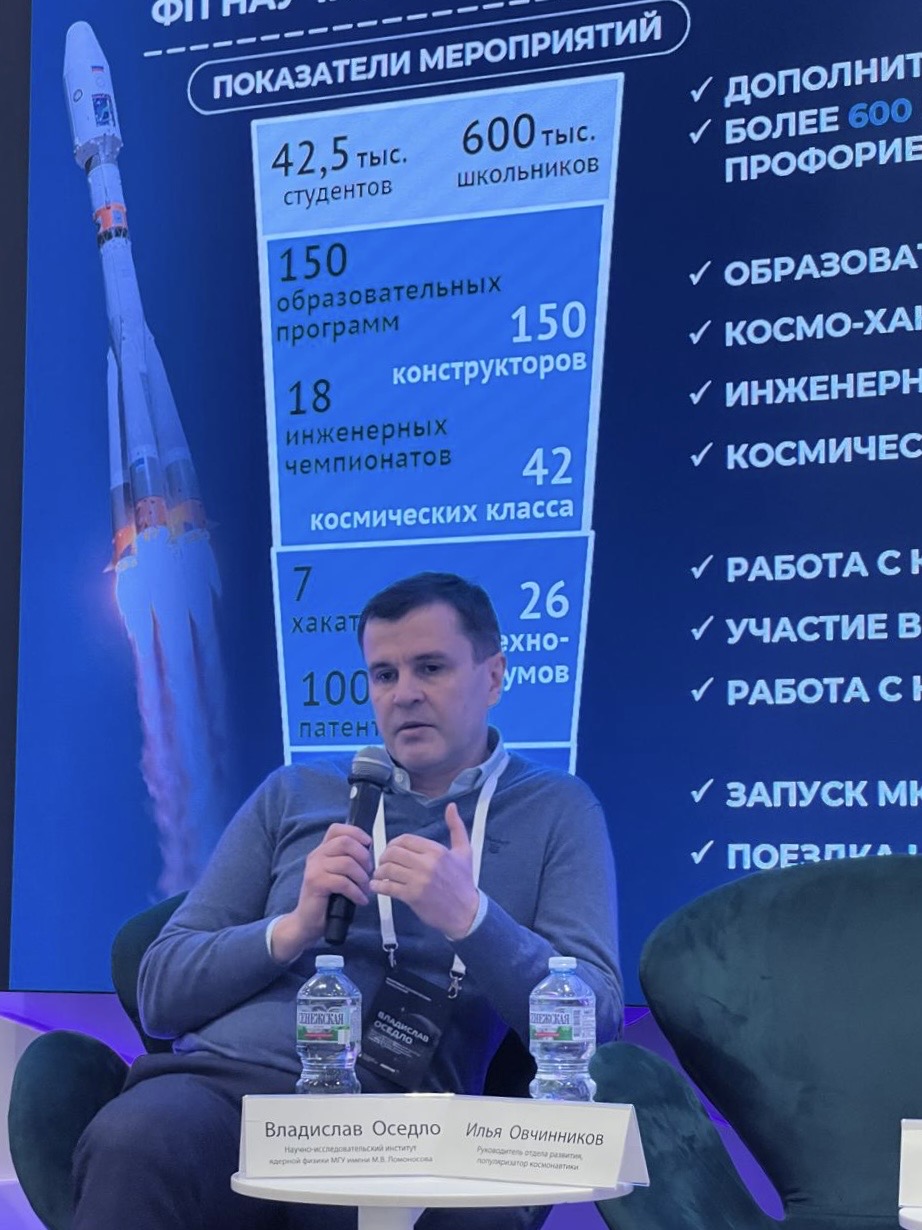Vladislav Osedlo, Deputy Director for Research Activities and Head of the Radiation Monitoring Laboratory at the Skobeltsyn Institute of Nuclear Physics, Lomonosov Moscow State University, participated in a panel discussion on "Aerospace Technologies: Conclusions and Opportunities."
The event took place on November 18 as part of the Space Technologies Congress, marking a significant occasion in the field of space science and technology. The congress brought together leading experts, scientists, engineers, and businesspeople actively involved in the advancement of the aerospace industry.
The discussion focused on the rapidly evolving aerospace sector, during which participants highlighted significant achievements in areas such as aviation, astronautics, robotics, and information technology. These achievements open up vast opportunities for future generations of researchers who are oriented towards innovation and continuous development.
In particular, the discussions emphasized contemporary developments in satellite technologies. In this regard, the critical importance of scientific and educational initiatives, such as "Constellation-270" and "Space-Pi," was noted, which provide students and schoolchildren the opportunity to send their devices into space free of charge. Vladislav Osedlo emphasized that "small CubeSat-format satellites make this process feasible at minimal cost. The journey from conceptual idea to actual launch can take less than a year."
The congress served not only as a platform for sharing experiences but also as a catalyst for new initiatives and projects in the field of space research and technologies. Participants discussed mechanisms for integrating modern scientific discoveries into practical activities, aimed at significantly accelerating the processes of development and implementation of innovations in the aerospace industry.
The event took place on November 18 as part of the Space Technologies Congress, marking a significant occasion in the field of space science and technology. The congress brought together leading experts, scientists, engineers, and businesspeople actively involved in the advancement of the aerospace industry.
The discussion focused on the rapidly evolving aerospace sector, during which participants highlighted significant achievements in areas such as aviation, astronautics, robotics, and information technology. These achievements open up vast opportunities for future generations of researchers who are oriented towards innovation and continuous development.
In particular, the discussions emphasized contemporary developments in satellite technologies. In this regard, the critical importance of scientific and educational initiatives, such as "Constellation-270" and "Space-Pi," was noted, which provide students and schoolchildren the opportunity to send their devices into space free of charge. Vladislav Osedlo emphasized that "small CubeSat-format satellites make this process feasible at minimal cost. The journey from conceptual idea to actual launch can take less than a year."
The congress served not only as a platform for sharing experiences but also as a catalyst for new initiatives and projects in the field of space research and technologies. Participants discussed mechanisms for integrating modern scientific discoveries into practical activities, aimed at significantly accelerating the processes of development and implementation of innovations in the aerospace industry.

